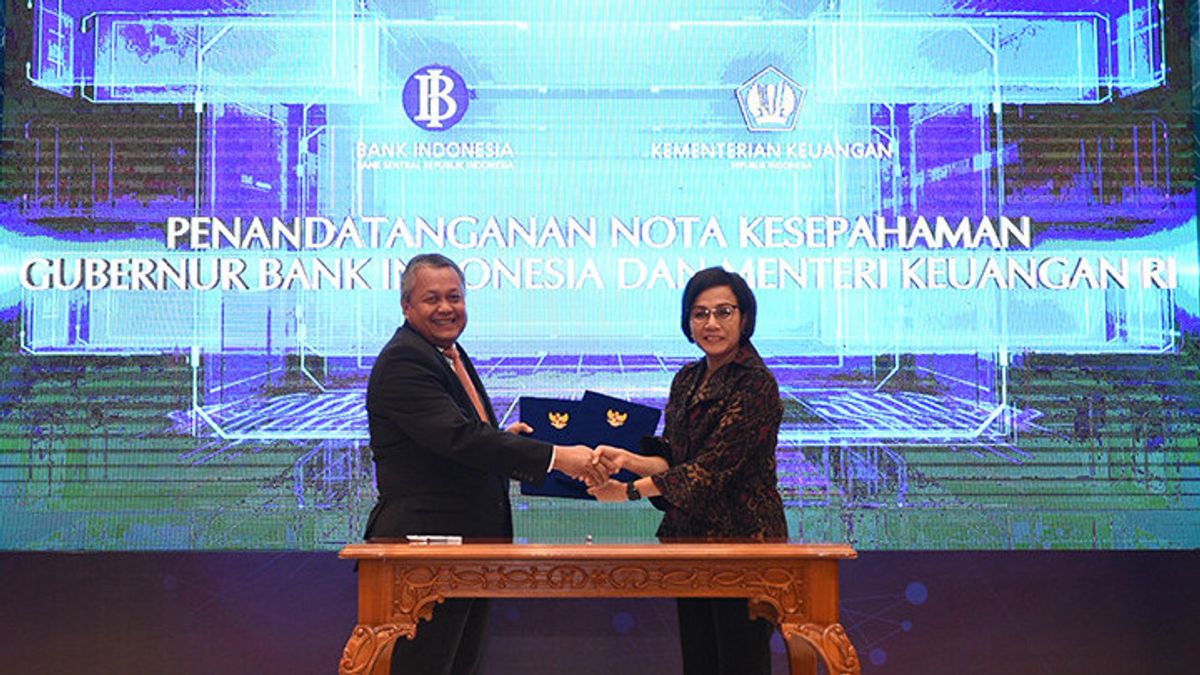JAKARTA - Bank Indonesia (BI) together with the Directorate General of Customs and Excise (DJBC) of the Ministry of Finance will increase entrepreneur compliance through the implementation of the Instant Integrated Foreign Exchange Monitoring information System or SiMoDIS starting January 1, 2020.
Director General of Customs and Excise Heru Pambudi said this system integrates the flow of export-import documents from DJBC with cash flows from BI so that the government can reconcile this data with foreign exchange transactions in a comprehensive manner.
"This legal umbrella synergy is the memorandum of understanding between the Governor of BI and the Minister of Finance on January 7, 2019 which will be followed by a cooperation agreement between BI and DJBC," he said at the DJBC Head Office, Jakarta, Friday, December 27.
Heru said the cooperation agreement regulates the scope for exchanging data and information held by each party related to export and import activities, as well as the implementation of joint analysis on the compliance of entrepreneurs regarding customs and foreign exchange for export and import activities.
The exchange of data and information in the agreement includes export and import data, manifest data, data on foreign exchange results from exports, import payments, and profiles of exporters and importers.
He said DJBC and BI will also develop competencies in terms of human resources such as training, seminars, research and field work practices to facilitate these activities.
Heru explained that this system is an effort to improve compliance with foreign exchange reporting obligations so that it is expected to support the control of the current account deficit.
He said SiMoDIS provides complete information about the actual export value and import value based on the foreign exchange proceeds from exports (DHE) and foreign exchange payments for imports (DPI).
"This system represents a work that is systemized, automated, and real time or instantaneous," he said.
He said the results of the data reconciliation were used as one of the indicators for compiling the compliance profiling of entrepreneurs, namely entrepreneurs who were in the compliant group would be given a better status than non-compliant users.
"From the BC side, we can carry out a conciliation so that there are no under or over invoices. That's the principle," he said.
Heru said that compliant exporters will get incentives in the form of ease of import for export purposes (KITE), bonded areas (KB), authorized economic operators (AEO), and are used as one of the considerations in the tax restitution service process.
Meanwhile, compliant importers will be prioritized to get incentives in the form of priority lane importers, main partners (MITA), and AEO.
On the other hand, Heru emphasized that entrepreneurs who do not comply will be subject to administrative sanctions or suspension of services and blocking, as well as being under surveillance through a joint program scheme between DJBC and the Directorate General of Taxes.
Meanwhile, Bank Indonesia Senior Deputy Governor Destry Damayanti said that SiMoDIS was able to support the formulation of policies with more accurate and up-to-date information on export proceeds and foreign exchange import payments.
Not only that, Destry said that SiMoDIS can also improve reporting efficiency because it reduces the burden of reporting and provides information feedback quickly and online.
"This system can provide information on foreign currency supply and demand from export and import transactions in a fast, precise and accurate manner," he said.
He continued, on 29 November 2019 his party had issued Bank Indonesia Regulation (PBI) No.21 / 14 / PBI / 2019 concerning Export Proceeds and Foreign Exchange Payments for Imports to support the implementation of SiMoDIS.
Destry explained that the PBI includes provisions for foreign exchange proceeds from exports, foreign exchange earnings from exports from natural resources, and additional regulations on foreign exchange reporting on import payments.
"The implementing provisions for the PBI will be published in the near future," he said.
The English, Chinese, Japanese, Arabic, and French versions are automatically generated by the AI. So there may still be inaccuracies in translating, please always see Indonesian as our main language. (system supported by DigitalSiber.id)








